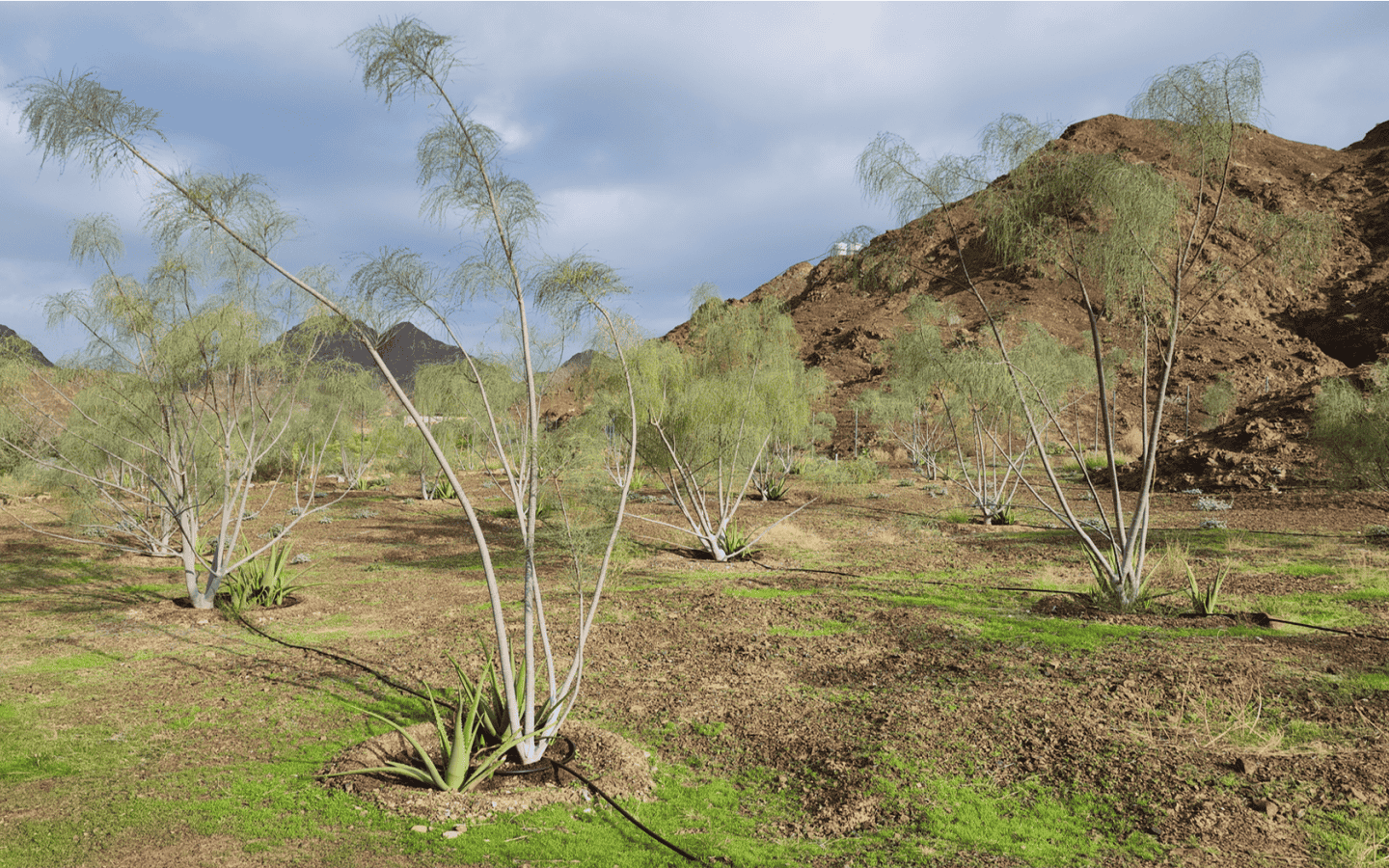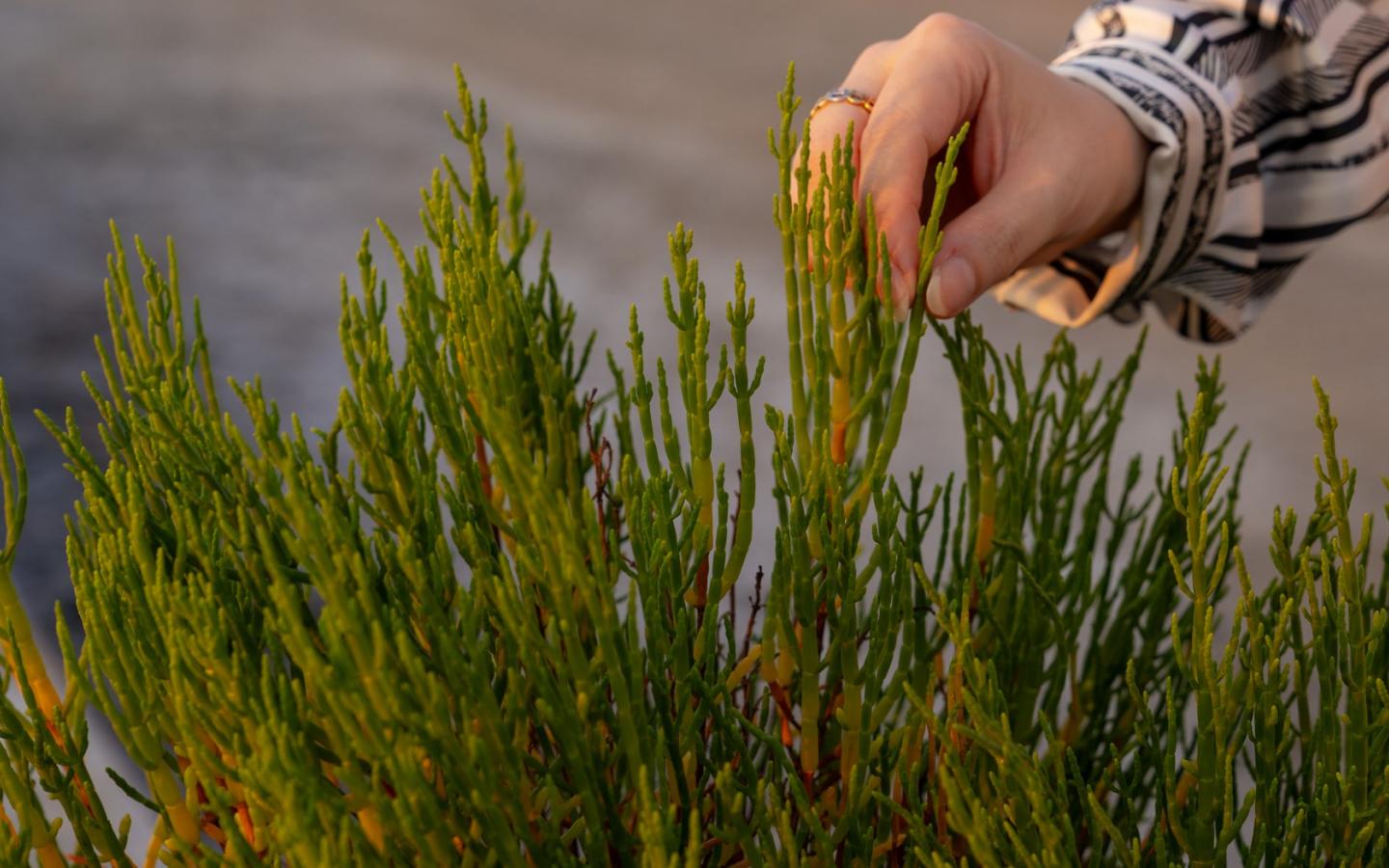Unconventional and exciting Halophytes
Equally exciting are halophytes - salt-loving plants that thrive in high-saline environments such as the saltmarshes found along the UAE’s coastline. Nutritional analyses conducted by scientists from the International Center for Biosaline Agriculture as part of the Nature-based Solutions project reveal that locally grown halophytes are rich in antioxidants, fibre and vitamins C, B1, and B12, as well as all nine amino acids – a rarity amongst plants.
Though relatively unknown in the UAE’s culinary landscape, halophytes have long been consumed in other parts of the world where they are known as samphire, sea beans, sea asparagus, glasswort or pickleweed.
As a plant-based superfood, halophytes have the potential to contribute to the growing Superfood Market, which is estimated to expand from USD 183 billion in 2024 to USD 330 billion by 2034. Currently, a few gourmet restaurants in the UAE, such as BOCA and Eugene, offer seasonal dishes with Salicornia imported from France, the UK and the Netherlands, priced at an average of AED 128/kg. However, our pilot suggests that locally grown Salicornia could be offered at a much more affordable AED 75/kg, opening up opportunities for chefs to incorporate this nutritious and versatile plant into a broader range of dishes at a more accessible price point.
To raise excitement and awareness around locally grown halophytes, Nature-WWF and our partners have launched a new concept book, Halophytes - The UAE's Secret Ingredient for Climate-Resilient Cuisine. The book features innovative combinations and applications of halophytes alongside other local ingredients, created by prominent names such as Patricia Roig, Executive Chef at MICHELIN Green Star restaurant BOCA, Kelvin Cheung, Chef Partner of MENA’s 50 Best Restaurants Jun’s, and award-winning Chef Luca Cobre of Healthy Farm Eatery.
Overcoming barriers to mainstream adoption
By creating a market for Arabian Moringa and locally grown halophytes, we aim to support the local cultivation of these plants and boost agricultural innovation, which in turn can create alternative revenue streams for local communities, spark greater SME growth and entrepreneurship, and support economic diversification.
However, these options remain inaccessible for many due to a lack of familiarity and lack of availability in the local market. By investing in public awareness and education, scientific research, support for local farmers and culinary innovation, we have an opportunity to tap into these climate-resilient ingredients, contributing towards a more sustainable, food-secure UAE.



